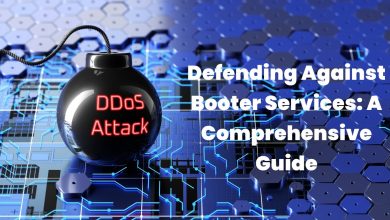VoIP systems offer numerous advantages, but they also raise concerns about security. As with any internet-based technology, VoIP is susceptible to potential security threats. Understanding these risks and implementing appropriate measures can significantly enhance the security of your VoIP system. In this article, we’ll explore the security aspects of VoIP and provide valuable insights into safeguarding your communication infrastructure.
Assessing VoIP System Vulnerabilities
Before implementing security measures, it’s crucial to be aware of potential voip phone vulnerabilities. Common security risks include eavesdropping, call tampering, identity spoofing, denial-of-service (DoS) attacks, and phishing scams targeting VoIP users. VoIP traffic, if not encrypted, can be intercepted and manipulated by hackers. Additionally, insecure devices, weak passwords, and outdated software can serve as entry points for attackers.
Encryption: The Key to VoIP Security
Encrypting your VoIP traffic is a fundamental step in bolstering system security. By using encryption protocols like Secure Real-time Transport Protocol (SRTP) or Transport Layer Security (TLS), you can prevent eavesdropping and protect sensitive data transmitted during calls. Ensure that your VoIP service provider supports encryption and properly configure it on your network devices.
Network Security and Firewalls
Securing your network is essential to protect your VoIP infrastructure. Implement robust firewalls to monitor and filter incoming and outgoing VoIP traffic. Create separate virtual LANs (VLANs) for VoIP devices to isolate them from the rest of the network. Enforce strict access control policies, and regularly update your firewall’s rules to counter emerging threats.
Intrusion Detection and Prevention Systems (IDPS)
To augment the security of your VoIP system, consider implementing Intrusion Detection and Prevention Systems (IDPS). These systems act as a proactive defense, continuously monitoring network traffic for suspicious activities and potential attacks. IDPS can detect anomalies, such as unusual call patterns or unauthorized access attempts, and respond in real-time to thwart potential threats.
When integrated with your VoIP infrastructure, IDPS can help prevent and mitigate various security breaches, ensuring the confidentiality and integrity of your communication data. Regularly review IDPS logs and reports to stay informed about potential threats and fine-tune security measures based on identified patterns.
Backup and Disaster Recovery Planning
Despite robust security measures, it’s essential to have a comprehensive backup and disaster recovery plan for your VoIP system. Data loss or unexpected service disruptions can occur due to natural disasters, hardware failures, or security breaches. Regularly back up your VoIP configurations, call logs, and other critical data to a secure off-site location.
Consider redundancy in your network infrastructure to minimize downtime. Establish a well-defined disaster recovery procedure outlining roles and responsibilities in the event of a system failure. Regularly test your backup and disaster recovery processes to ensure their effectiveness when needed most.
Strong Authentication and Password Management
Implementing strong authentication methods is vital to prevent unauthorized access to your VoIP system. Use two-factor authentication (2FA) for user logins and administrative access. Enforce the use of complex passwords and encourage regular password changes. Disable default passwords on VoIP devices and maintain a secure password management policy.
Regular Software Updates and Patch Management
Stay vigilant about software updates and patches for your VoIP system. Regularly update firmware, software, and applications to ensure they are equipped with the latest security fixes. Outdated software can contain known vulnerabilities that attackers can exploit. Have a well-defined patch management process to address security updates promptly.
Employee Training and Awareness
Educating your employees about VoIP security best practices is crucial in fortifying your defenses. Train them to recognize phishing attempts, social engineering tactics, and other common scams. Instruct employees on how to handle suspicious calls and report potential security incidents. Promote a culture of security awareness and encourage responsible usage of VoIP services.
Conclusion
VoIP systems offer unparalleled communication benefits, but their security should not be taken lightly. By assessing vulnerabilities, implementing encryption, ensuring network security, strengthening authentication, staying updated with software patches, and educating employees, you can enhance the security of your VoIP system. A well-protected VoIP infrastructure allows your business to reap the benefits of cost-effective and efficient communication without compromising sensitive information.





